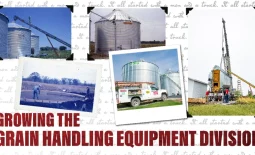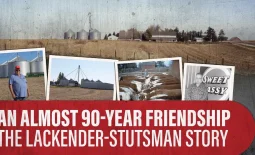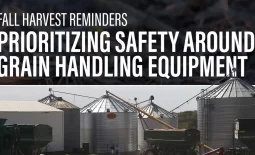Failing Grain Bin Floors
Grain bins are a long-term investment. The average grain bin in our area lasts 40 to 50 years, but when taken care of they can last for generations. However, just because a grain bin should last over 40 years, that doesn’t mean it won’t need repairs or even upgrades from time to time. The biggest or most common issue our service team has encountered lately — grain bin floors. Beyond being a headache, floor issues also impact the bottom line from poorly ventilated corn to loss through the floor itself.
Non-Existent Floors
There are older grain bins out there, commonly government bins, that were installed without true floor grain bin floors. Instead, they have tunnels in the concrete foundation that are supposed to push air in a “Y” type manner throughout the bin. This method of ventilation does not promote optimum airflow and can result in a good portion of the grain not being aerated.
Floors Needing Replacement
Our team is increasingly seeing 20- to 30-year-old floors experiencing issues that are beyond repair. The most common indicators a floor should be replaced include bent, punctured or rusted floor panels. The root cause of bent and punctured floor panels is the bin foundation. The sheer weight of the grain and rodents wreaking havoc underneath the foundation can lead to cracking and eventually sinking. Once this starts to occur, the floor panels will begin bending to the point where they can’t be corrected. On the other hand, if the foundation becomes uneven, the floor stands underneath the floor panels can push through and puncture the floor. We also see older floor planks that are heavily rusted or obsolete because the galvanizing in older floors tends to not be as hardy as it is today.
The Solution: Aeration Floors
Our recommendation is to install a new aeration floor. As the name suggests, aeration floors are designed to move air through stored grain better, therefore, preserving the stored grain more effectively. If the grain is level, an aeration floor will push air more evenly throughout the bin, keeping temperatures consistent and preventing grain spoilage from bacteria, mold and insects. With already tight margins, spoilage can make or break profits. Not to mention, you’ve already put a full season’s worth of work into that grain.
If you’re questioning whether your grain bin floor needs a little TLC, give us a call. We are happy to come out and take a look.










